wikiHow is a “wiki,” similar to Wikipedia, which means that many of our articles are co-written by multiple authors. To create this article, 24 people, some anonymous, worked to edit and improve it over time.
wikiHow marks an article as reader-approved once it receives enough positive feedback. In this case, 85% of readers who voted found the article helpful, earning it our reader-approved status.
This article has been viewed 124,740 times.
Learn more...
If you want to survive school, you've got to be prepared. Learning to properly pack a survival kit will help you get through the school year successfully. Stay confident and ready for all the challenges you'll face. Learn to pick the right items and organize them into a ready-to-go survival kit.
Steps
Choosing the Right Items
-
1Include some extra school supplies. If you run out of something in your backpack or pencil bag, it's good to have some extras of the most important stuff in your survival kit. You can also include some things that you won't need every day, but might need occasionally. Here are some good survival supplies for the classroom:
- A spare pencil and sharpener, or extra pencil lead
- A small stapler with extra staples
- A pink eraser
- Paper clips
- A highlighter
- A flash drive
- Post-It notes
- A copy of your schedule
-
2Include some basic first-aid stuff. The nurse is always available for serious injuries or problems, but if you want to take care of a small cut or another issue yourself, it's good to have some basic first-aid stuff:
- Band-Aids
- Ibuprofen or aspirin (check with your parents/school nurse)
- Antacid tablets
- Antibiotic ointment
- Tampons or pads
Advertisement -
3Include some personal hygiene supplies. Feeling clean and confident is essential to school survival. Keep a few hygiene supplies in your kit to make sure you can make it through the day with little touch-ups, if necessary.
- Deodorant
- Breath mints or gum, if permitted
- Perfume, cologne, or body spray
- Face wipes or oil pads
- Hand sanitizer or lotion
- A toothbrush or some toothpicks
- Chapstick
-
4Include some snacks. In-between class snacks are a great way to help get yourself through the day.[1] If you need a little boost, try keeping one of the following healthy snacks and treats in your survival kit:
- Granola bars
- Some dried fruits or fruit leather
- Some nuts or sunflower seeds
- Chocolate, for an occasional treat
-
5Keep a list of important phone numbers. Even if you've got most of your numbers in your phone, it's important to have a list of important contact numbers in case of an emergency. If you lose your phone or your phone dies, make sure you've got a hard copy of the following numbers:
- Your parents' work numbers
- Your doctor's number
- Your neighbor's numbers, in case of emergency
- Other important numbers
-
6Include some make-up essentials. If you wear make-up to school, you might have some touch-up stuff already in your purse or other bags. Still, if you want to have back-ups, keeping a few little things into your survival kit is a good idea:
- Neutral lip-gloss
- A small eye shadow palette
- Eye pencil
- Mascara
- An applicator brush
-
7Include some other miscellaneous items. If you forget any of the following, you'll be happy to have some back-ups in your survival kit. These might be going above and beyond, but in an emergency, they might be essential.[2] Consider throwing any of the following into your school survival kit:
- A water bottle
- Hair ties and bobby pins
- A brush or comb
- Spare socks and underwear
- Some spare cash and change
- A few batteries
- A spare phone charger
Packing Your Kit
-
1Find a good carrying case. Depending on how much stuff you want to keep in your survival kit, any number of different containers might be appropriate. Make sure your survival kit can fit in your locker comfortably, or inside your back-pack if you'd rather keep it there. Any of the following make for great survival kit cases:
- Tupperware containers
- Lunch boxes
- Small fishing tackle boxes
- Old toolboxes with different compartments
- Small make-up or pencil bag
- Extra back-pack
-
2Pack what you'll likely need. There's a lot of stuff you could put into your school survival kit, but it probably doesn't all need to be there. Only pick stuff that you're likely to need to use, and take out stuff that you end up never using. If you've never used a highlighter in your whole life, don't put one in your kit. Only you know yourself and what's best for you.
- Revisit your survival kit after a few weeks of school. If there's a stapler always available in the office for students to use, you probably don't need to have your own in your survival kit.
-
3Decorate and label your kit. Depending on what kind of kit you've got, it can be fun to decorate it. If you're a creative type, decorate your kit with stickers and markers to personalize it.
- Check out Pinterest for a lot of creative ideas about how to organize and decorate your kit.
- Alternatively, it might be fun to make your survival kit look like something else. Put it in an old First-Aid kit to make it look like one, or a Fishing tackle box. Nobody will know the difference.
-
4Change out some of the items regularly. If you keep food or other perishable items in your survival kit, make sure you go back into your kit and change them out to keep everything fresh.
- Check your kit before you leave for vacation, especially. You don't want to come back from Spring break to find a bunch of dried up or rotten stuff in your survival kit.
- Facial wipes and other types of pads can dry out, making them useless. Check on them regularly to make sure they're still fresh for when you need them.
- Make sure you keep your caps and lids all shut, to avoid spilling or drying out any of the hand sanitizer and lotion you have in your kit.
-
5Keep the kit in your locker or bag. After you get your survival kit decorated and organized, put it somewhere you'll be able to access it regularly and easily if you need it. Most school kits are best kept in your locker at school, but you can also keep smaller ones in your backpack or in your purse.
- If you'd rather, you could even keep a kit in your car, if you drive to school, or in your cubby box at school if you don't have a locker.
References
About This Article
To make a school survival kit, start by getting something to carry your kit in, like a backpack, pencil bag, or plastic container. Then, fill it with extra school supplies, some basic first-aid items, snacks, and anything else you think you might need throughout the school day. You can also include some personal hygiene items, like deodorant, gum, and lotion, as well as miscellaneous items like a brush, some hair ties, and a water bottle. To learn how to efficiently pack your school survival kit, scroll down!
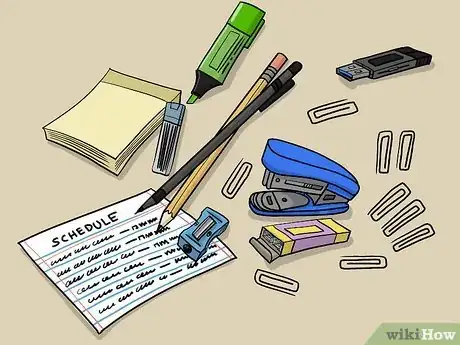
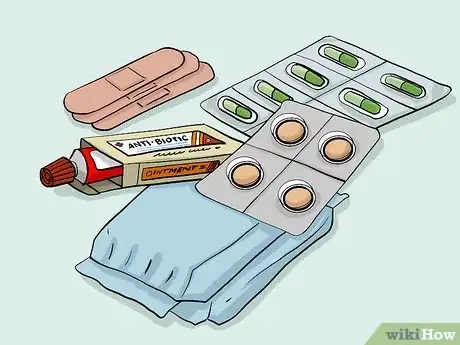


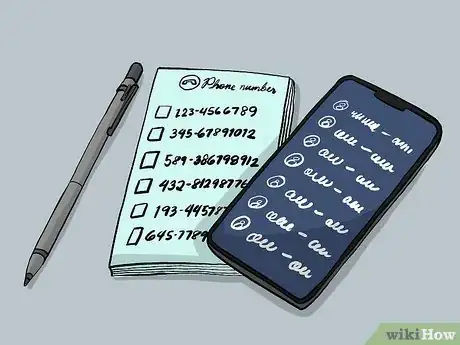

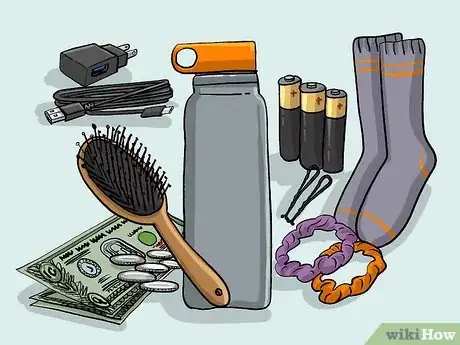
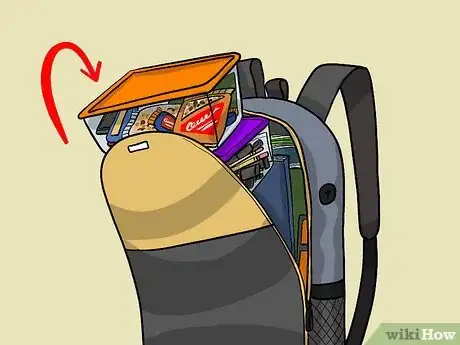

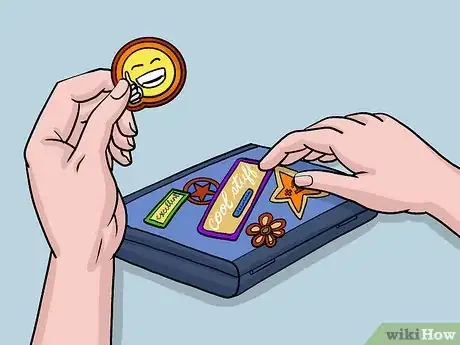



-Step-16.webp)





















-Step-16.webp)




































